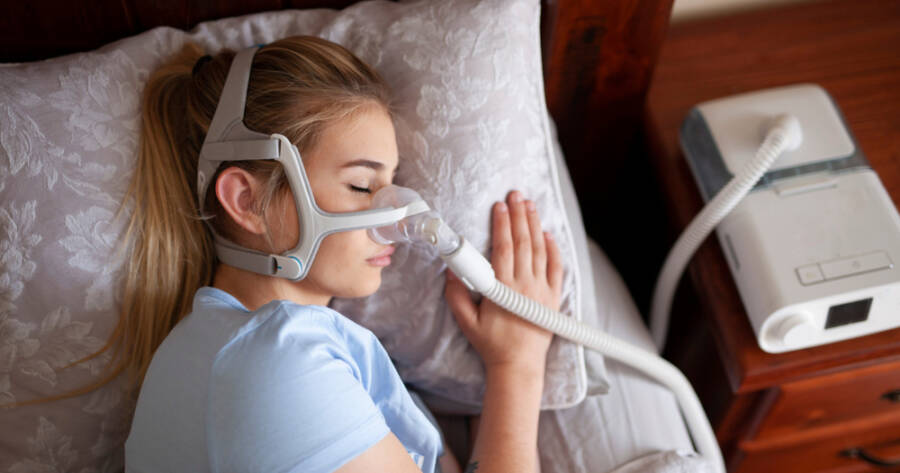Sleep apnea is a sleep disorder that affects millions worldwide, often going undiagnosed due to subtlety in its symptoms. This condition, characterized by repeated interruptions in breathing during sleep, can lead to significant health complications if left untreated. Recognizing signs of sleep apnea is crucial for seeking timely intervention and improving overall sleep quality. Understanding key indicators and potential treatments may help those affected regain restful nights.
What is Sleep Apnea?
Sleep apnea is a common sleep disorder that causes individuals to experience pauses in breathing or shallow breaths while sleeping. These pauses can last for a few seconds to several minutes and can occur multiple times per hour. Beyond the increased risk for heart disease and stroke, sleep apnea can also lead to high blood pressure and diabetes. Here’s the scary part: it is estimated that millions of people worldwide have sleep apnea, but many remain undiagnosed.
There are three main types of sleep apnea: obstructive sleep apnea, central sleep apnea, and mixed sleep apnea. Obstructive sleep apnea is the most common type and occurs when the airway becomes blocked during sleep. Central sleep apnea occurs when the brain fails to send signals to the muscles that control breathing. Mixed sleep apnea is a combination of obstructive and central sleep apnea.
To be diagnosed with sleep apnea, you’ll participate in a sleep study that records your breathing, heart rate, and oxygen levels. From there, sleep apnea will either be confirmed or ruled out.
Sleep Apnea: 5 Signs You Might Have It
There are a number of signs and symptoms that may indicate that an individual has sleep apnea. Some of the most common signs include:
- Loud snoring: Snoring is a common problem, but loud, chronic snoring can be a sign of sleep apnea. If any of these other symptoms are combined with loud snoring, it might be worth speaking with a medical professional.
- Witnessed pauses in breathing during sleep: If someone has noticed that you stop breathing for periods of time while sleeping, it is important to see a doctor.
- Excessive daytime sleepiness (EDS): If you feel groggy and exhausted, even after a full night’s sleep, it could be a result of undiagnosed sleep apnea.
- Morning headaches: Headaches upon waking up in the morning can be a sign of sleep apnea.
- Difficulty concentrating: People with sleep apnea may have difficulty concentrating and paying attention during the day.
If you are experiencing any of these symptoms, it is important to see a doctor to rule out sleep apnea. Early diagnosis and treatment can help to prevent serious health problems.
Sleep Apnea Treatment: What You Need to Know
There are a number of different treatment options available for sleep apnea, depending on the severity of the condition and the individual’s preferences. Some of the most common treatments include:
- Lifestyle changes: Losing weight, avoiding alcohol before bed, and getting regular exercise can help to improve sleep apnea symptoms.
- Continuous positive airway pressure (CPAP) therapy: CPAP therapy is the most common treatment for sleep apnea. It involves wearing a mask over the nose or mouth that delivers pressurized air to the airway, helping to keep it open during sleep.
- Oral appliance therapy: Oral appliances are devices that fit in the mouth and help to keep the airway open during sleep. They are often used as an alternative to CPAP therapy.
- Surgery: Surgery can involve removing tissue from the airway or repositioning the jaw to improve airflow. Of course, this method will only be considered when all other treatment options have been attempted.
It is important to work with a doctor to determine the best treatment option for sleep apnea. Early diagnosis and treatment can help to prevent serious health problems and improve overall quality of life.
Learn More About Sleep Apnea
Recognizing potential signs of sleep apnea is essential for seeking timely intervention and improving quality of life. From loud snoring to daytime fatigue, identifying symptoms and consulting healthcare professionals can help establish a diagnosis.
Understanding treatment options, such as CPAP therapy and lifestyle changes, may guide individuals toward restful nights and enhanced overall health. If you suspect sleep apnea, consider contacting a sleep specialist to explore diagnostic and treatment pathways tailored to your needs. Empowering yourself with knowledge and resources may lead you to more restful and healthier nights ahead.

